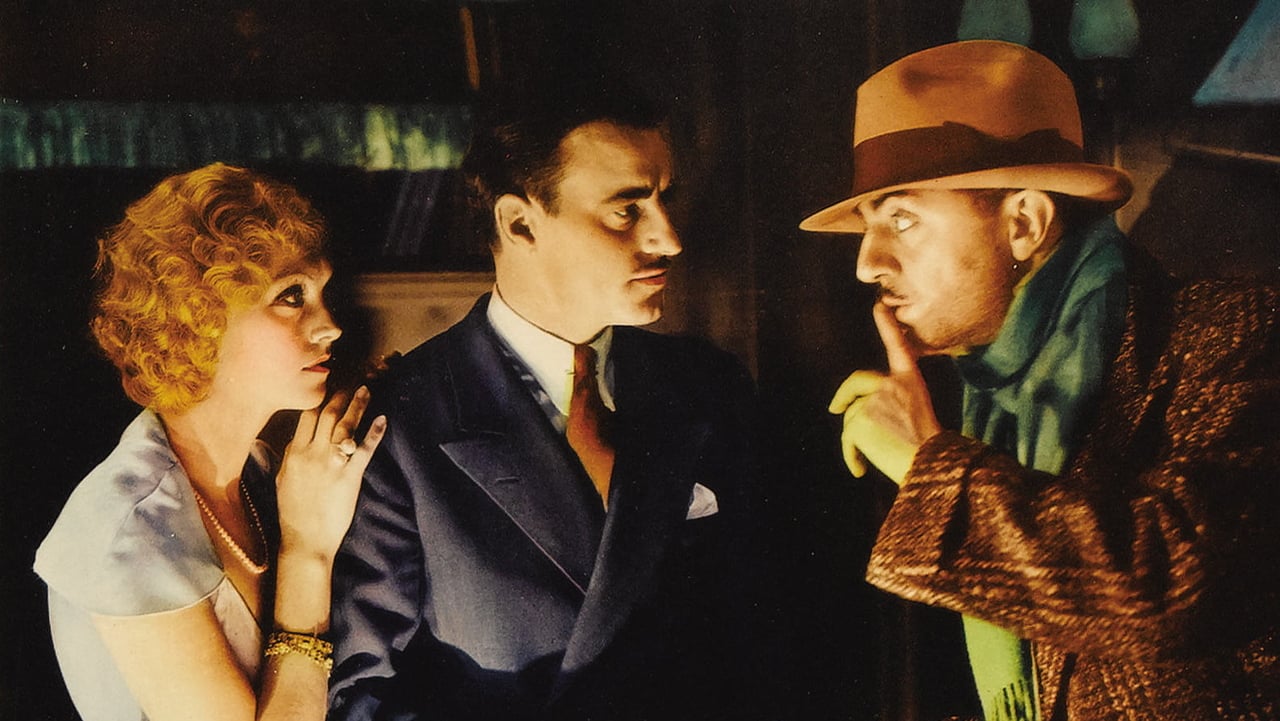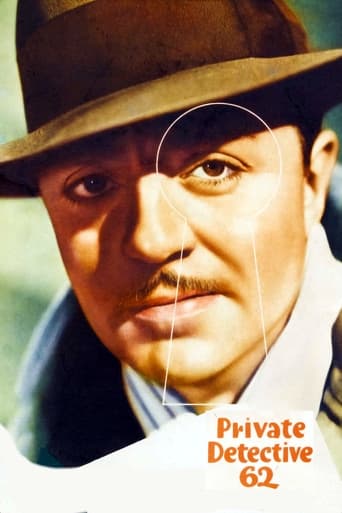

just watch it!
... View MoreHighly Overrated But Still Good
... View MoreIt's a mild crowd pleaser for people who are exhausted by blockbusters.
... View MoreExactly the movie you think it is, but not the movie you want it to be.
... View MoreDirector: MICHAEL CURTIZ. Screenplay: Rian James. Story: Raoul Whitfield. Photography: Tony Gaudio. Film editors: George Amy, Harold McLernon. Art director: Jack Okey. Costumes: Orry-Kelly. Music composed by Bernhard Kaun, directed by Leo F. Forbstein. Associate producers: Tenny Wright, Hal B. Wallis. (Although he is credited in some movie books, and possibly even on IMDb, Wallis did not regard this film as one of HIS movies).Copyright 20 July 1933 by Warner Bros. Pictures, Inc. Presented by Warner Bros. Pictures, Inc. and the Vitaphone Corp. New York release at the Radio City Music Hall, 6 July 1933. 8 reels, 67 minutes.Television title: MAN KILLER.SYNOPSIS: A seedy private eye becomes involved with a lady gambler.COMMENT: A somewhat episodic plot is very stylishly tied together and tautly directed by Michael Curtiz. The movie has plenty of early film noir ambiance and a number of striking scenes in which Curtiz makes full use of some marvelously atmospheric sets. Gaudio's artful cinematography is also a major factor, as is Amy's judicious film editing and Kaun's menacing score.The acting is well-nigh perfect. Powell was born to play this type of role and he receives forceful assistance here from a classic roster of character artists, led by Ruth Donnelly. Arthur Hohl as usual is an absolute stand-out. As the mystery heroine, Margaret Lindsay provides a most attractive foil.One can only wonder why such a great piece of vintage entertainment is not better-known and why it doesn't command the sort of cult following that Powell's more or less contemporary "The Kennel Murder Case" (1933) and "Manhattan Melodrama" (1934) still enjoy today.
... View MoreDespite the title, this is not a genre movie. There are elements of a whodunit, straight melodrama, and businessman shenanigans, but the results don't easily fall into any category. What appeal the movie does have comes, in my view, from Powell and some good plot twists.So how is Don Free (Powell) going to make a living now that he's been cashiered from the diplomatic service. After all, it is 1933 and jobs of any kind are hard to come by. Some of the movie's best parts manage to convey this sense of an economically depressed time. Anyhow, for Don, there's always a need for private detectives since there's always a need to get the goods on somebody or something. So he fast- talks his way into an agency partnership with an unscrupulous associate, and that's when the trouble begins.Powell's his usual slick self, but without an opportunity for his amusing Thin Man tongue-in- cheek. Shot in just 21 days, the erratic script sometimes shows (follow Janet's path, if you can). Nonetheless, ace studio director Mike Curtiz blends tricky plot elements in smooth fashion so that it's hard to notice. Note, however, the fleeting reference to "snow" (heroin) and "hophead". This is a pre-Code production, while such references to hard drugs would disappear from mainstream movies for several decades. Speaking of hopheads, I'm still wondering if James Bell's Whitey is supposed to be a dash of comic relief or suffering ill effects of his addiction. Either way, it's the movie's only actor's blemish, at least in my opinion. No, the movie's nothing special, except for the compelling Powell who would soon get to show his full range of talents in the delicious Thin Man series.
... View MoreWilliam Powell's stay at Warner Brothers was a short one - only a couple of years - but he hit the bullseye in every picture he did there. This film is one of them. Here William Powell plays Donald Free, a secret agent of sorts who gets caught in France with stolen documents. The agency he works for has already told him that if he is caught all knowledge of his action will be disavowed, so he is unsurprised when that is exactly what happens. For some strange reason, the French take Donald all the way to New York harbor before deciding to transfer him to another ship and send him right back to France. The only reason for all of this inefficiency can be as a plot device for Donald to make an easy escape by jumping overboard and swimming to shore, which he does.Donald is now home and at liberty, but that doesn't get you far in 1933 Depression era America. Without references he is unable to get a job as a detective for any police department or obtain a private detective license. But after pounding the pavement with no luck for months, Donald manages to partner up with a private detective firm on its last legs. The partner has the license but not much talent at detecting or discretion, and Donald has the talent and no license. Ruth Donnelly plays the firm's secretary with mouth and moxy to spare. They're doing OK and then a well-known gangster bankrolls the firm and floods the office with business. When that gangster wants a favor in return - the discrediting of a beautiful customer that his gambling joint owes tens of thousands of dollars to because he doesn't have the money to pay her when she finally decides to cash in her chips - things begin to get really interesting. You'll probably figure out what's going on even before Powell's character solves all of the mysteries for you, but here as in most of the early 30's Warner Brothers films, most of the fun is the journey not the destination. Highly recommended.
... View MoreDon Free (William Powell) is a down-on-his-luck character in a depression-era big city that reluctantly joins a private detective agency to make a few bucks. Janet Reynolds (Margaret Lindsay) is a gal with a gift for roulette. Janet is either extremely lucky or using an undisclosed system, but however she is doing it, she has been on a winning streak for some time, letting the house hold her winnings so that she won't feel afraid to leave the casino at night. Her gambling gifts have run up a tally of over $50,000, a fortune in the Great Depression. She announces to the management of the casino that she intends to cash her chips so that she can head to Europe, a decision which imposes a deadline on the casino, especially since they don't want to part with that much cash. They devise an elaborate scheme when she agrees to meet with the payout master in his apartment. They know that she always carries a gun for protection, so they arrange for the weapon to be loaded with blanks, and when the payout master aggressively comes on to her, she shoots him in self-defense. She flees the apartment in terror, believing that she has committed a murder. The payout master calls his buddies on the telephone to let them know that she fell for the gag, when suddenly a hand eases through the curtains with a pistol in it, and the payout master is shot again, this time for real. Don Free (William Powell) has become involved with Janet (Margaret Lindsay) because of a case he has undertaken with his shady partner, hoping for a $10,000 fee, but unfortunately for the bad guys in this film, Don Free is an ethical detective, and he begins using his considerable intellect to defend Janet and get her out of the mess. Highly entertaining movie, even though you can see they are falling for each other, but Don and Janet are so appealing in their roles, you're pulling for them all the way through the picture. Masterfully directed by Michael Curtiz, this is one depression-era film which provides solid entertainment.
... View More